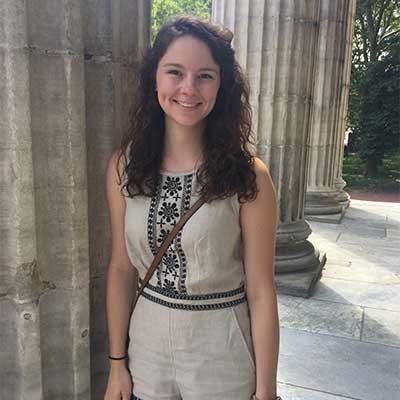The Island Press Urban Resilience Project, supported by the Kresge Foundation, is working to promote a holistic understanding of resilience that is grounded in equity and sustainability. This post, by Rebecca Wodder, originally appeared on EarthTalk.org

In 2006, six months after Hurricane Katrina devastated New Orleans, I toured the city’s decaying wreckage with a delegation of national environmental leaders. Gruesome reminders were everywhere in the Lower Ninth Ward. On the walls of the remaining houses were spray-painted numbers, indicating how many dead bodies had been found inside.
After walking the destroyed neighborhoods, we flew over the area with experts from the U.S. Geological Survey. From the air, we saw vast expanses of water where wetlands had once stood between the city and the sea. Southern Louisiana has been melting away since the 1930s, and the enormity of the wetlands restoration needed to protect the city beggars the imagination.
At that time, I was deeply conflicted about the future of New Orleans. The people we met were so fiercely determined to rebuild, I couldn’t help but cheer them on. At the same time, I had to wonder whether it was ethical—or sane—to rebuild in such a dangerous place.
I recently visited New Orleans again, and I’ve come to a very different conclusion.
Over the last decade, the people of New Orleans have reckoned with the task of building resilience. And they have made impressive progress.
I met people who are out in front of that effort—people like Arthur Johnson, who heads the Center for Sustainable Engagement and Development in the Lower Ninth Ward. Soft-spoken and passionate about his work, Arthur envisions a Lower Ninth with abundant local food resources; sustainable housing and infrastructure; and healthy wetlands and forests. His group is working with residents to start community gardens, so they can grow their own healthy food. They are helping homeowners install solar panels and insulation—lowering utility bills and carbon emissions. And they are constructing rain gardens to capture storm water, lessening the “subsidence” that is causing the Lower Ninth to sink farther below sea level.
In the ten years between my first and second visits to New Orleans, I’ve moved from asking whether rebuilding the city is futile, to seeing that there is great value in what is happening here. Now, I wholeheartedly hope that New Orleans can be a place where locals lead the charge toward a resilient future, with support from across the country.
Why the change of heart?
First, New Orleans has rebounded far more than I thought possible 10 years ago. City leaders from government, business, philanthropy and nonprofits have embraced their environmental reality and developed sustainable strategies to live with water. That means rebuilding the city’s natural capital—including its wetlands and floodplain forests—and its social capital—the bonds of culture and camaraderie that hold people together in good times and bad. It means strengthening the transportation system to improve evacuation in the event of a large storm. And it means workingwith—rather than against—the Mississippi River to rebuild coastal wetlands. Moreover, as a silver lining from the BP oil spill disaster, the city and the State of Louisiana actually have money to put these good intentions into action.
Second, the consequences of global warming, including sea level rise, are materializing much more quickly than appeared likely in 2005. A quarter of the world’s population lives in the coastal zone and there will not be enough money or cement to protect all of those people from storms and flooding with man-made structures. That means we must develop sustainable strategies for coastal cities that work with nature. New Orleans is in a good position to lead the way.
The third change is a deeply personal one. I used to think that natural science and environmental law would save us; that if ecologists just talked longer (and maybe a bit louder) about what we know to be true, that skeptics and opponents would be convinced and their behavior would change. For better and worse, I no longer put all my faith in science and law. I’ve come to realize that human resilience is critically important, and that we must nurture it.
It is easier to be cynical and list all the reasons that rebuilding New Orleans is a wasted effort at best and a dangerous one at worst. And yet, as I headed to the airport on a Sunday afternoon, I watched the city turn out en masse for their football team, the New Orleans Saints. A quote from Jim Wallis, the evangelical theologian, came to mind:
“Perhaps the only people who view the world realistically are the cynics and the saints. Everybody else may be living in some kind of denial about what is really going on and how things really are. And the only difference between the cynics and the saints is the presence, power, and possibility of hope….Hope is not a feeling; it is a decision.”
The people of New Orleans have decided to choose hope. I’ve decided to join them.
Rebecca Wodder is a board member of River Network, a national association that empowers local river champions, and former President of American Rivers, a national river advocacy organization. As a Fellow at the Center for Humans and Nature, she explores how communities can enhance their climate resilience via sustainable approaches to rivers and freshwater resources.


